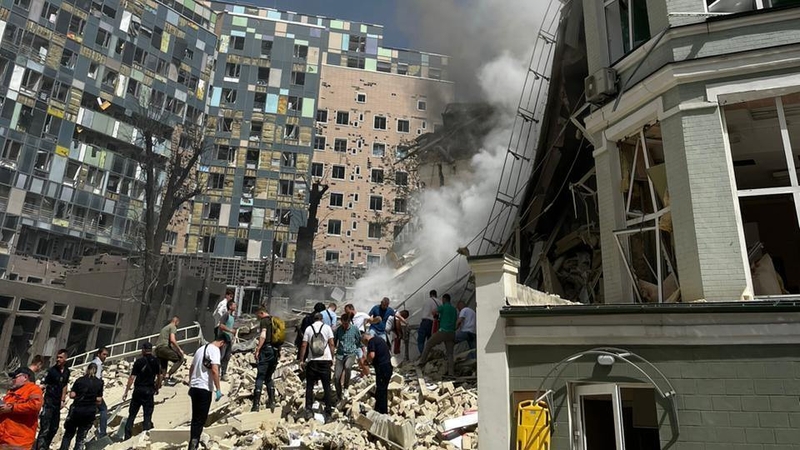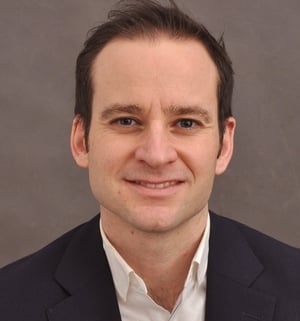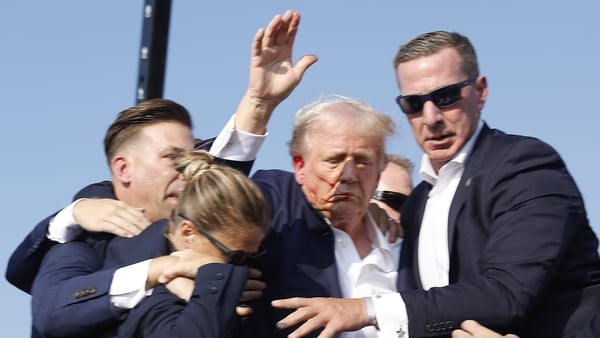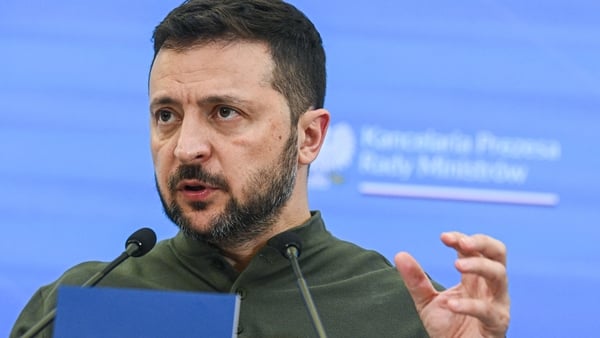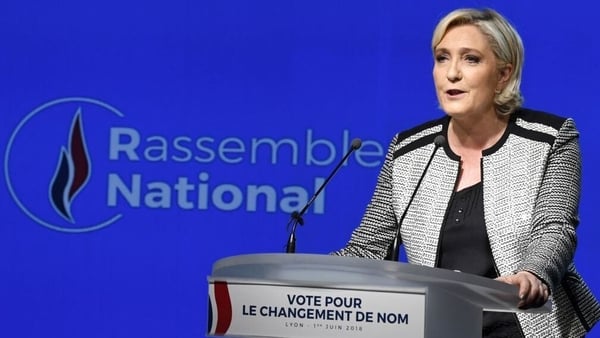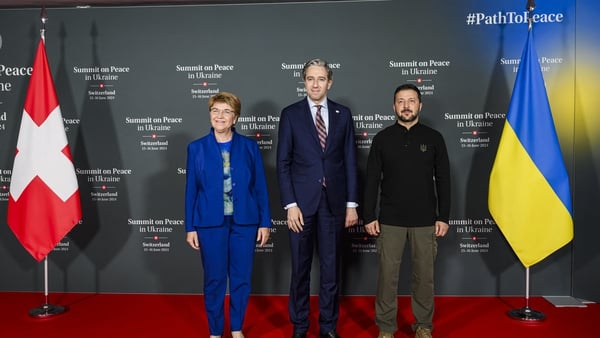At 9.52am local time last Monday, air raid sirens sounded in Kyiv.
The city's residents have become accustomed to the daily warning of incoming Russian missile and drone attacks. But Monday's attacks were set to be one of the heaviest on the capital since the start of the war.
Staff at the Okhmatdyt Children’s Hospital, the largest in Ukraine, took no chances.
They quickly began to evacuate more than 600 children to the hospital’s bomb shelter. That meant moving children connected to drips, others on dialysis and in intensive care down staircases.
At the facility, three heart surgeries were also being performed in the hospital’s operating theatres and could not be stopped.
At 10.42am, 50 minutes after the sirens first sounded, hospital staff felt and heard a loud blast.
"The ground shook and the walls trembled," the hospital’s director, Dr Volodymyr Zhovnir, told the UN Security Council by video link on Tuesday.
"Both children and adults screamed and cried from fear, and the wounded from pain. It was real hell."
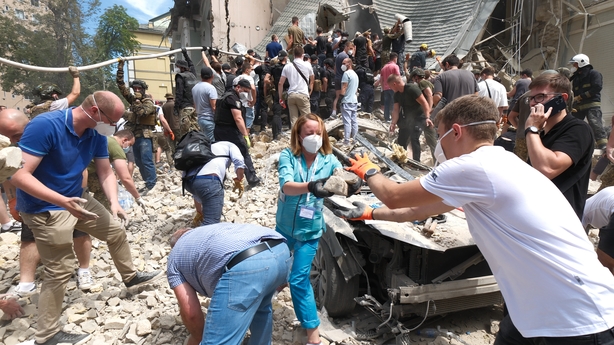
Kateryna Bulavinova, a health expert who works for UNICEF in Ukraine, arrived at the hospital with colleagues about one hour after the blast.
"Nobody knew whether there were people or not under the part of the building which collapsed," Ms Bulavinova told RTÉ News.
"I have never left Ukraine during the war and witnessed lots of different things but I never saw this number of volunteers in one spot," she said.
"The emergency services were evacuating the children and people were walking from all directions, carrying water or building gloves to take away stones from the building."
Miraculously, no children were killed from the missile strike that hit the hospital’s toxicology unit and completely destroyed it.
The quick thinking of staff had prevented mass casualties.
But two adults were killed and 32 injured, including seven children, according to Kyiv authorities.
One of the dead was Dr Svitlana Lukianchyk, a 30-year-old paediatric liver specialist, who had guided children to a bomb shelter but did not make it to safety herself before the missile struck.
The other fatality was a man who had been visiting the hospital at the time of the blast.
Then, on Wednesday, the first child fatality was announced by Viktor Liashko, Ukraine’s Minister of Health.
A boy who had been a patient in Okhmatdyt’s intensive care unit died after being transferred to another hospital in Kyiv.
Along with the toxicology unit, the blast also destroyed part of Ukraine’s only oncological laboratory.
A number of other units were damaged, including three intensive care units.
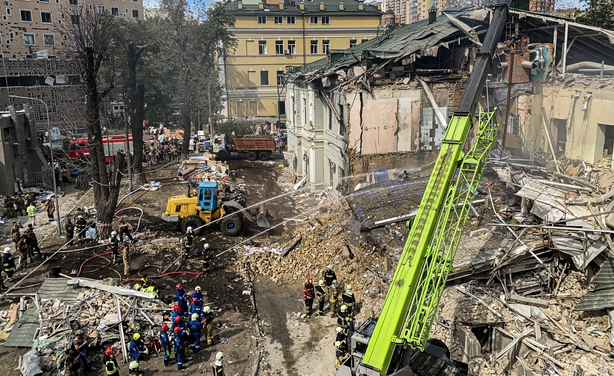
Video analysis of the attack carried out by the UN’s Human Rights Monitoring Mission in Ukraine assessed that there was a "high likelihood" that a Russian Kh-101 missile caused the attack.
Experts interviewed by BBC's Verify team, a fact-checking unit, reached the same conclusion.
The Kh-101 is only used by Russia’s armed forces.
Russia’s ministry of defence said that its forces had targeted military targets only.
Instead, the Kremlin claimed that the damage to the hospital was caused by Ukrainian air defence missiles, though it has provided no evidence to support the claim.
Staff and patients began to emerge from Oktmatdyt’s bomb shelter after the blast only for air raid sirens to sound a second time.
"It was very lucky that a second strike did not happen," a source who attended the rescue operation told RTÉ News, adding that people had been slow to return to the bomb shelter after the sirens sounded again.
Russian missiles delivered death and destruction elsewhere in the city too.
A missile struck the Adonis maternity and children’s clinic in the capital, killing five medical staff and two patients.
Viktoria Bondarenko, a senior cashier at the clinic, was among the dead. Both her husband and adult son are fighting at the front, reported Ukrainian news portal, Pravda.ua.
Gynaecologist Svitlana Poplavska was killed instantly. She had just returned to work from maternity leave and was the mother of a two-year-old girl.
Thirty-three people were killed in the capital that morning, ordinary people starting a week’s work.
Another 11 people were killed on Monday in Russian missile attacks on Kryvyi Rih, Donetsk and other eastern cities.
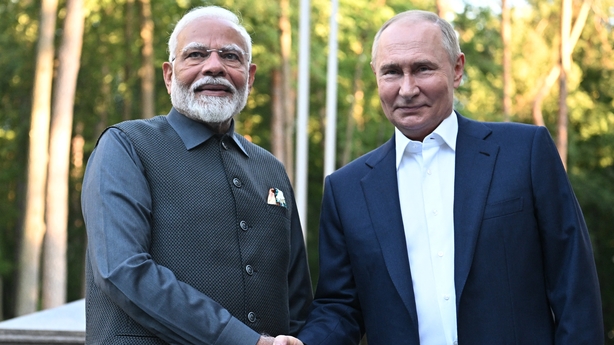
Ukraine’s defence forces said Russia had launched 38 drones and missiles that morning across the country and that it had shot down 30 of them.
Russia has previously targeted medical facilities during the course of the 28-month war, most notably a maternity hospital in Mariupol during the first week's of Moscow’s full-scale invasion.
This week, the World Health Organization said it had registered more than 1,800 attacks on healthcare facilities, transport and patients since February 2022. It is a damning statistic against the Russian Federation's war tactics to strike terror into the lives of Ukrainians.
Such attacks do not appear to unnerve Russian President Vladimir Putin.
On Monday evening, Mr Putin took Indian Prime Minister Narendra Modi for a spin in a golf buggy to view the gardens at his state residence outside Moscow.
The two leaders then sat down for tea and cake to take about trade and the war.
India has not backed the West’s sanctions against Moscow and is the second largest purchaser of Russian crude oil after China, in turn, fueling Russia’s economy.
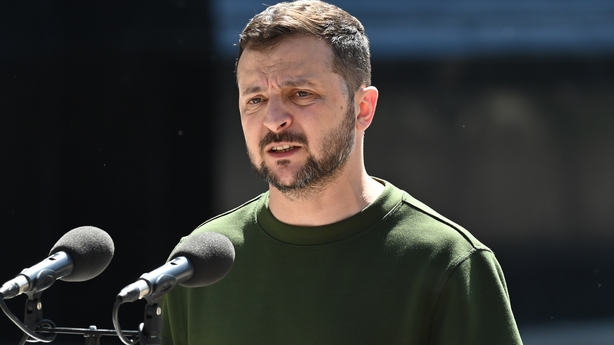
Ukraine’s President Volodymr Zelensky criticised Mr Modi’s meeting with the Russian leader on social platform X as "a huge disappointment and a devastating blow to peace efforts".
But on Tuesday, Mr Modi, whose government has stressed its neutrality on the war since February 2022, delivered a message of humanity in front of Mr Putin in the Kremlin.
The sight of innocent children dying is "extremely horrific", he said, clearly referring to that day's attacks on Ukraine.
Mr Zelensky’s week of diplomacy started in Warsaw and ended in Washington.
On Monday morning, as Russian missiles struck Ukrainian cities, he was making a surprise visit to the Polish capital for meetings with Poland’s prime minister and president and to sign a security agreement.
I got delayed on my way to a meeting in downtown Warsaw as police locked down the area for Mr Zelensky's cavalcade to drive down Jerusalem Avenue, one of the city's main thoroughfares.
Mr Zelensky was hoping that his country would receive enough military aid at the NATO summit in Washington to keep the invader at bay.
And, to a large extent, it was a successful summit for Ukraine.
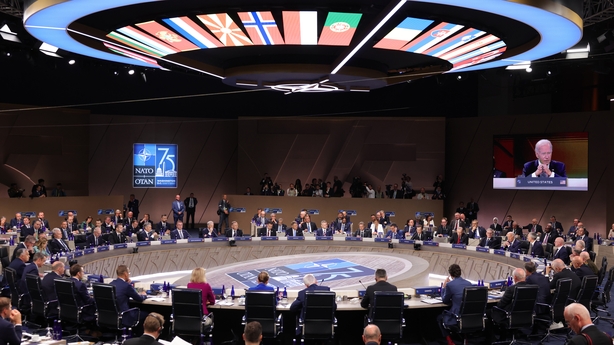
NATO leaders committed to a $43 billion military aid package for 2025 which means Ukrainian generals will be able to plan campaigns and think beyond the day-to-day of defending the frontline.
The package will include more air defence systems and the first US-produced F-16s to be handed over to Kyiv, courtesy of the Danish and Dutch armed forces.
Crucially for Ukraine's long-term security, NATO leaders committed in a joint statement to supporting the country’s "irreversible path" towards joining the alliance, though no timeline was specified.
Air defence is the priority for Ukraine, said Mykhailo Samus, a defence analyst and director of Kyiv’s New Geopolitics Research Network.
"It’s not only Patriots that we need. We need several echelons of short missiles, long-range missiles, hypersonic missiles, anti-ballistic missiles," he told RTÉ News.
Russia, he said, is "using all possible types of missiles and drones", including long-range reconnaissance drones that are very small.
Patriot surface-to-air missile systems are more suited to targeting bigger missiles or Iranian-made Shaheed drones, not smaller Russian missiles.
On the ground, the eastern and southern fronts remain deadlocked.
Since last October, Russian forces have tried to break through Ukraine’s defences in Donbas. Yet, they have only advanced a few kilometres in places, taking high casualties and equipment losses in the process.
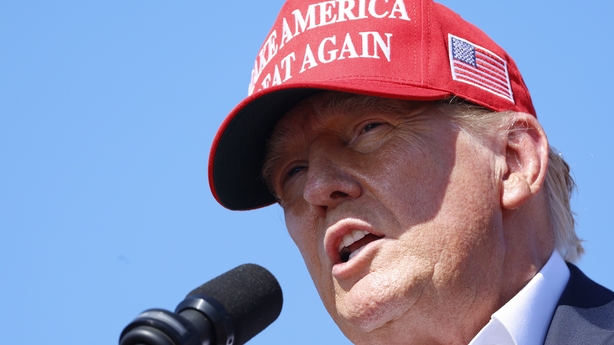
Mr Samus said Ukraine’s main battlefield tactic may switch to blockading Crimea and cutting the land corridor from Russian-occupied territory to the peninsula.
"Now, we are waiting for the F-16s and hoping that it will be a window of opportunity to conduct decisive operations toward Crimea."
"If we blockade Crimea, it will change the course of the war," he said, adding that it would give Ukraine a better position at future peace talks.
That military strategy would need to happen before November in that event that Donald Trump is re-elected as US president. Such an outcome loomed large over the summit in Washington this week, raising questions over the future of US funding for Ukraine.
The Republican party's platform - a 16-page document released last Tuesday that outlines the party's election manifesto - makes no reference to Ukraine.
It makes a sole reference to "restoring peace in Europe", which does not define the party's position on the war.
Monday's events showed that nowhere is safe from Russian attacks in Ukraine, not even the sanctuary of a children's hospital.
NATO funding will help bolster Ukraine's air defences over its cities but Kyiv also needs to pursue an offensive operation in the coming months to break the military deadlock.
